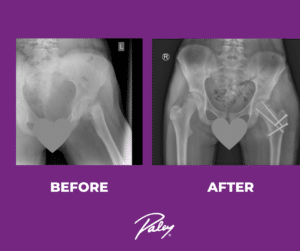At the end of the semester, it turned out that all the best photos were provided by the students from the first group. To create so many photos, they had to take pictures intensively. This encouraged them to experiment, and thus they honed their skills and learned from their mistakes. The students in the second group focused on considering and planning how to take the perfect photo. The practice was relegated to the background, so they did not have so many opportunities to train photography. As a result, their results turned out to be only average.
This little experiment perfectly reflects the mechanism of striving for perfection by setting your expectations in such a way that they are unrealistic to meet.
Nothing is perfect in our world. Nevertheless, social media and advertising try to convince us otherwise. Working on ourselves, achieving new goals, motivating ourselves to act are the things that help us function and implement our plans. What is disturbing is the growing tendency to strive to be perfect in every area of life. Surrounding yourself with ideal images from social media and setting yourself so high that it’s unrealistic to meet expectations, it’s easy to fall into the trap.
At this point, it is worth paying attention to a few myths that circulate in our society: the myth of a perfect parent (especially a mother) and employee, a perfect child and a perfect figure. In an ideal Instagram world, women have flat bellies a few days after giving birth, then easily combine the role of the perfect mother and employee of the year, the father is simply there, which is enough to be perfect in itself, and the children are always clean, smiling and cheerful – even during unpleasant medical procedures. And, of course, we know perfectly well that all this is exaggerated and untrue, but there is a scratch in the subconscious mind and from time to time the thoughts are triggered: why is everything going so well for them, and there is one big chaos in my place?
Constantly striving for the ideal can be frustrating. It is this paralyzing feeling that often causes our mind to block up and our body to flood with fear instead of driving us to action. Research shows that the constant pursuit of the specter of perfection can seriously damage your mental and physical health. Unrealistic expectations, strict demands on oneself, fear of failure and judgment of other people are just a few of the factors that go hand in hand with an increased risk of depression, anxiety and even eating disorders, high blood pressure and cardiovascular disease.
It’s not about stopping trying at all. The opposite of perfectionism is not letting go completely. It is being good enough and doing your duties well enough. People who want everything they do to be perfect often feel dissatisfied with themselves and their actions. They are more likely to set themselves rigid goals, with an all-or-nothing mindset. For such people, the most important thing is the destination, not the journey. They live in the belief that they must always give more, better. Therefore, many may feel disappointed when they achieve their goal. Then they wonder, “Is that all? If I succeeded, it means that it was not that difficult and worth the trouble and they quickly move on to the next project. There is no room for celebrating and savoring success.
Perfectionism is often passed down from generation to generation, from parents to children. If your parents were expecting you to only get As at school and win all the competitions, and didn’t notice all the hard work you put into achieving all of what you achieved, you may start to think of yourself as worth something only when you get top marks. Otherwise, it is not even worth trying, and any result below expectations is tantamount to failure. The only correct option is first place in a competition or contest. The second or the third will not be as rewarding anymore. Or they even may initiate a train of thoughts about what mistakes were made (and, of course, what a shame it is). Perfectionists often torture themselves with their mistakes and let their mistakes define them. But stumbles and setbacks are a remarkable opportunity for development! By drawing conclusions from the mistakes made, we develop and improve our skills. When you accept that you are imperfect, you can free yourself from the emotional distress caused by contemplating each mistake.
Life serves education and consists, among other things, in working on yourself – but not avoiding mistakes at all costs.
Moving from a perfectionist to forgiving yourself may also require some shifts in your thinking. When you get angry with your partner, child or friend for not meeting your expectations, remember that you are also imperfect and have the right to make different choices.
By the way, it is making mistakes and learning from them that prepares your child best for life. The real world will also not provide him with ideal situations and conditions. His friends, teachers, sports and school experiences will have shades of imperfection. When children are raised by parents who tolerate their weaknesses, children learn to accept their own faults and forgive themselves when they break something. They become gentler towards each other, which does not mean less ambitious. It really is of great value for a child to feel that everyone has a right to be wrong. Such thinking gives him courage and encourages him to act, because the child is not blocked by the thought of potential failure.
Pressure from the family undoubtedly affects the children, but it doesn’t stop there. Peers and other important adults away from home also play a vital role in a child’s life. If your daughter or son is surrounded by children for whom success is paramount and striving for first place in everything, they may feel ashamed and embarrassed if they cannot keep up with the rest. It can also have a negative impact on their self-confidence and self-esteem.
Finally, I leave you with Dr. Flett in mind, a researcher dealing with perfectionism and the pursuit of the ideal. He once said: If you are concerned that you are putting too much pressure on your children to get results, and this strengthens their tendency towards perfectionism, then try to remember their first few weeks of life. Would you like them to do more than just exist?
Clear J., Atomic Habits: An Easy & Proven Way to Build Good Habits & Break Bad Ones
Curran, T., Hill, A. P. (2019), Perfectionism is increasing over time: A meta-analysis of birth cohort differences from 1989 to 2016, Psychological Bulletin
Flett G. L., Hewitt P. L. (1991), Perfectionism in the Self and Social Contexts: Conceptualization, Assessment and Association With Psychopathology, Journal of Personality and Social Psychology
Harari D., Swider B.W., Steed L.B., Breidenthal A.P. (2018), Is Perfect Good? A Meta-Analysis of Perfectionism in the Workplace, Journal of Applied Psychology
Neff K. (2003), Self-Compassion: An Alternative Conceptualization of a Healthy Attitude Toward Oneself, Self and Identity






